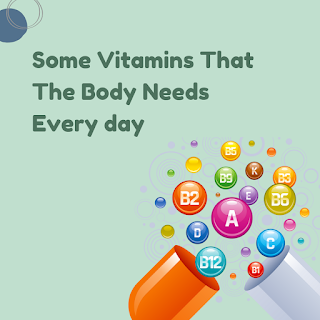what are the Benefits of B vitamins?how many it types?
Introduction
B vitamins are a group of essential nutrients that play a vital role in many bodily functions. They are involved in energy production, metabolism, and the formation of red blood cells. B vitamins are also important for the health of the nervous system and the skin.
There are eight B vitamins:
•Thiamine (B 1)
•Riboflavin (B 2)
•Niacin (B 3)
•Pantothenic acid (B5)
•Pyridoxine (B 6)
•Biotin (B 7)
•Folate (B 9)
•Cobalamin (B 12)
B vitamins are found in a variety of foods, including meat, poultry, fish, eggs, dairy products, fruits, vegetables, and whole grains. Some people may need to take B vitamin supplements, especially if they have a deficiency.
Benefits of B vitamins
B vitamins have a wide range of benefits for health, including:
Energy production: B vitamins are involved in the production of energy from food. They help to break down carbohydrates and fats into glucose, which is the body's main source of energy.
Metabolism: B vitamins are also involved in metabolism, which is the process by which the body converts food into energy and other substances. They help to break down protein, carbohydrates, and fats, and they also help to produce new cells.
Red blood cell formation: B vitamins are essential for the formation of red blood cells. Red blood cells carry oxygen to the body's tissues, so a deficiency in B vitamins can lead to anemia.
Nervous system health: B vitamins are important for the health of the nervous system. They help to protect nerve cells and they also help to produce neurotransmitters, which are chemicals that transmit signals between nerve cells.
Skin health: B vitamins are also important for the health of the skin. They help to keep the skin hydrated and they also help to protect the skin from damage.
Deficiency in B vitamins
A deficiency in B vitamins can lead to a variety of health problems, including:
Fatigue: Fatigue is one of the most common symptoms of a B vitamin deficiency.
Anemia: Anemia is a condition in which the body does not have enough red blood cells. This can lead to fatigue, shortness of breath, and pale skin.
Neurological problems: A deficiency in B vitamins can also lead to neurological problems, such as tingling or numbness in the hands and feet, difficulty concentrating, and depression.
Skin problems: A deficiency in B vitamins can also lead to skin problems, such as dry skin, eczema, and hair loss.
How to get enough B vitamins
The best way to get enough B vitamins is through a healthy diet. Foods that are good sources of B vitamins include:
•Meat
•Poultry
•Fish
•Eggs
•Dairy products
•Fruits
•Vegetables
•Whole grains
If you are concerned that you may not be getting enough B vitamins, you can talk to your doctor about taking a supplement.
Conclusion
B vitamins are essential nutrients that play a vital role in many bodily functions. They are involved in energy production, metabolism, red blood cell formation, and the health of the nervous system and the skin. A deficiency in B vitamins can lead to a variety of health problems, so it is important to get enough of these nutrients through a healthy diet or a supplement.
Additional information
•The recommended daily intake (RDI) of B vitamins varies depending on age and sex. For example, the RDI for thiamine is 1.2 milligrams (mg) for adult men and 1.1 mg for adult women.
•B vitamins are water-soluble, which means that they are not stored in the body and must be replenished regularly.
•B vitamins are sensitive to heat and light, so it is important to store them properly.
•If you are taking B vitamin supplements, it is important to talk to your doctor first to make sure that they are safe for you.
I hope this article has been informative. If you have any further questions, please feel free to ask.
THANK YOU.






Comments
Post a Comment